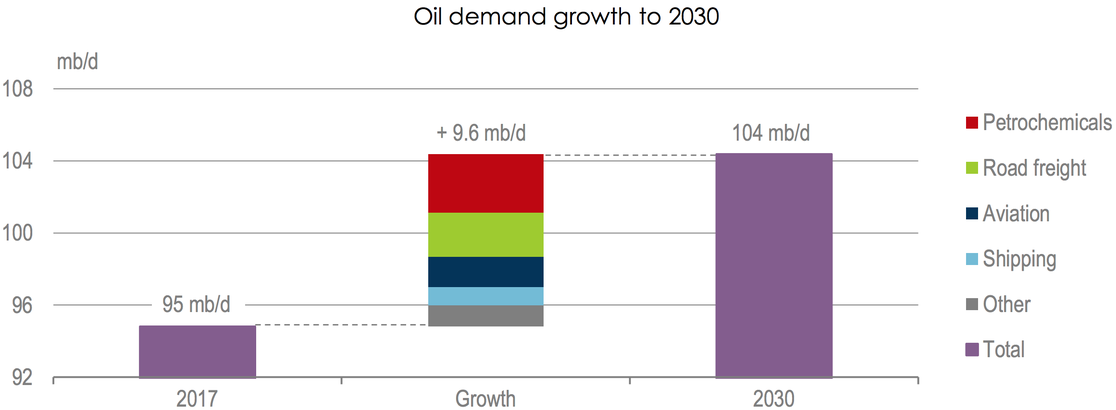
Rising use of petrochemicals that make plastics and other products will be the largest source of crude oil demand growth in coming decades, the International Energy Agency said in a new report.
The big picture: "Petrochemicals ... are set to account for more than a third of the growth in oil demand to 2030, and nearly half to 2050, ahead of trucks, aviation and shipping," the report shows.
- Petrochemicals are used to make plastics, as well as fertilizers, clothes and a wide array of other products.
- "Demand for plastics – the most familiar group of petrochemical products – has outpaced that of all other bulk materials (such as steel, aluminum or cement), and has nearly doubled since 2000," IEA notes.
- The report also notes that petrochemicals are used to make parts of clean-energy technologies, such as solar panels and batteries.
Why it matters: The IEA report calls the topic a "blind spot" in energy policy debates.
Petrochemicals are fundamental and helpful parts of the global economy, but also pose major pollution problems and represent a growing source of greenhouse gas (GHG) emissions.
- In particular, plastics are a major marine pollution problem.
- More broadly, the report's long-term forecast shows that recycling and efforts to curb single-use plastics will be "far outweighed" by rising plastics consumption in developing economies.
- In addition, the chemical sector represents 18% of all industrial-sector carbon emissions, and IEA forecasts substantial emissions growth in coming decades.
What's next (or could be): The report offers a "clean technology scenario" to lower the environmental toll of petrochemicals in coming decades.
- It includes the adoption of better waste management and recycling to help cut ocean-bound plastic waste in half and the use of carbon capture and storage among other actions.
Go deeper: Reuters has more here.
